‘Shocked to the core’: Rescuers and locals in Kent react to Priti Patel’s pushback plan
Around 14,300 migrants have arrived in Britain by boat from France this year, writes Rory Sullivan

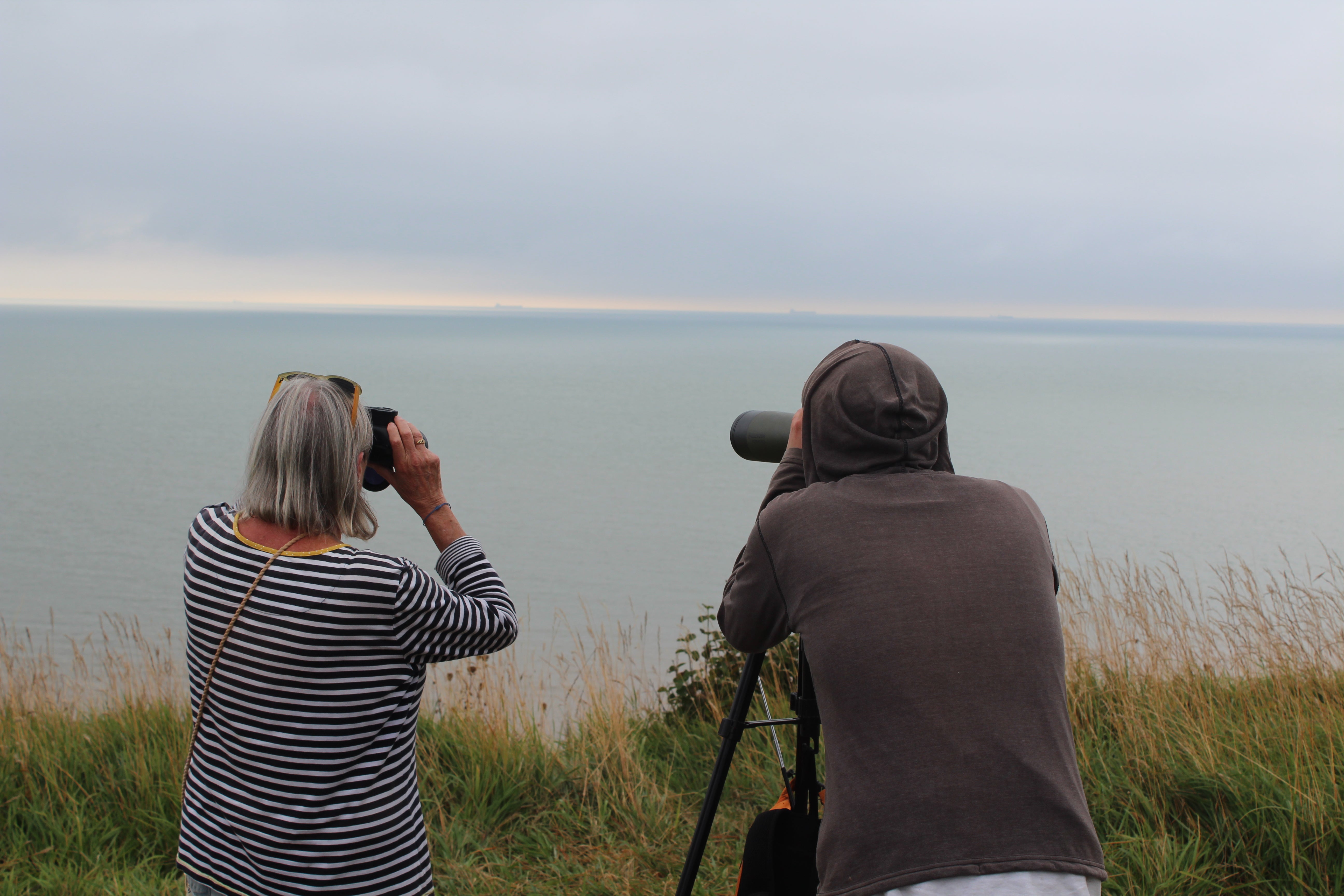
Priti Patel’s plan to “push back” migrants crossing the Channel has proved deeply contentious, not least in Kent, the county where dinghies from France land.
The strategy came to the public’s attention after more than 1,000 asylum seekers reached the British coast on Monday or Tuesday during a spell of good weather.
In total, at least 14,300 migrants have arrived in Britain by boat from France this year, according to the PA news agency, a steep increase from just over 8,000 in 2020.
On a cliff top near the seaside town of Deal on Friday morning, two volunteers check the Marine Traffic app and scan the horizon towards Dunkirk and Calais with their binoculars, looking for migrant vessels that might be in need of help. As they do so, their conversation turns to the home secretary’s latest proposal.
“I have friends in the lifeboat crews and in the border force, and they’re horrified. They don’t want to have anything to do with it. People in the town are shocked to the core that they’d even be asked to do that,” says Jane, a local resident who is in her 60s.
Her fellow volunteer Steve, 37, a health worker who used to work with refugee response teams in the Mediterranean, agrees. “It’s exceptionally dangerous to do pushbacks and it is also illegal.”
They are not alone in thinking the move goes against the international Law of the Sea. Xavier Bertrand, who leads the regional council around Calais, has accused the British government of “de facto breaking the rules commonly accepted by all UN member countries”.
An adviser to the French interior minister also warned that Ms Patel’s idea - if implemented - could make the Channel a “theatre of human tragedies”, while a former British naval chief asserted that it could easily result in “someone being killed”.
I have joined Jane and Steve on their morning patrol for Channel Rescue, an organisation founded in August 2020 to safeguard those making the hazardous journey across the world’s busiest shipping lane.
Their shift - at one of the organisation’s seven watch points which stretch from Dungeness to Deal - passes without incident, possibly because the bad weather overnight deterred potential crossings.
It was a rather different picture on Tuesday, when Jane spotted a dinghy being intercepted by the British Border Force. She walked down to where it had been towed, laden with water to offer the group of 30 men and women who had just arrived.
The new volunteer was saddened by the abuse she and her colleagues received from a “vocal minority” on the shingle beach. They were called “gullible, naive idiots” by people who told them the asylum seekers should go home.
Such vitriol is nothing new to the team at Channel Rescue. After footage of their work was shown on GB News earlier this summer, they received thousands of death threats. For this reason, Steve and Jane ask me to use only their first names in this article.
Steve gives me a sense of some of the 800 threats they received in just one week, saying one read: “‘We’re going to come find you and throw you off a cliff. Or drown you.’”
He also tells me how he wants the government to improve the UK’s asylum system and stop its “dystopian” rhetoric. He cites Ms Patel’s plan last year to use water cannons against migrant boats as an example of the latter. “In an ideal world, we wouldn’t be here. There would be humanitarian corridors, humanitarian visas, safe legal mechanisms for people to make the crossing without risking their lives.”
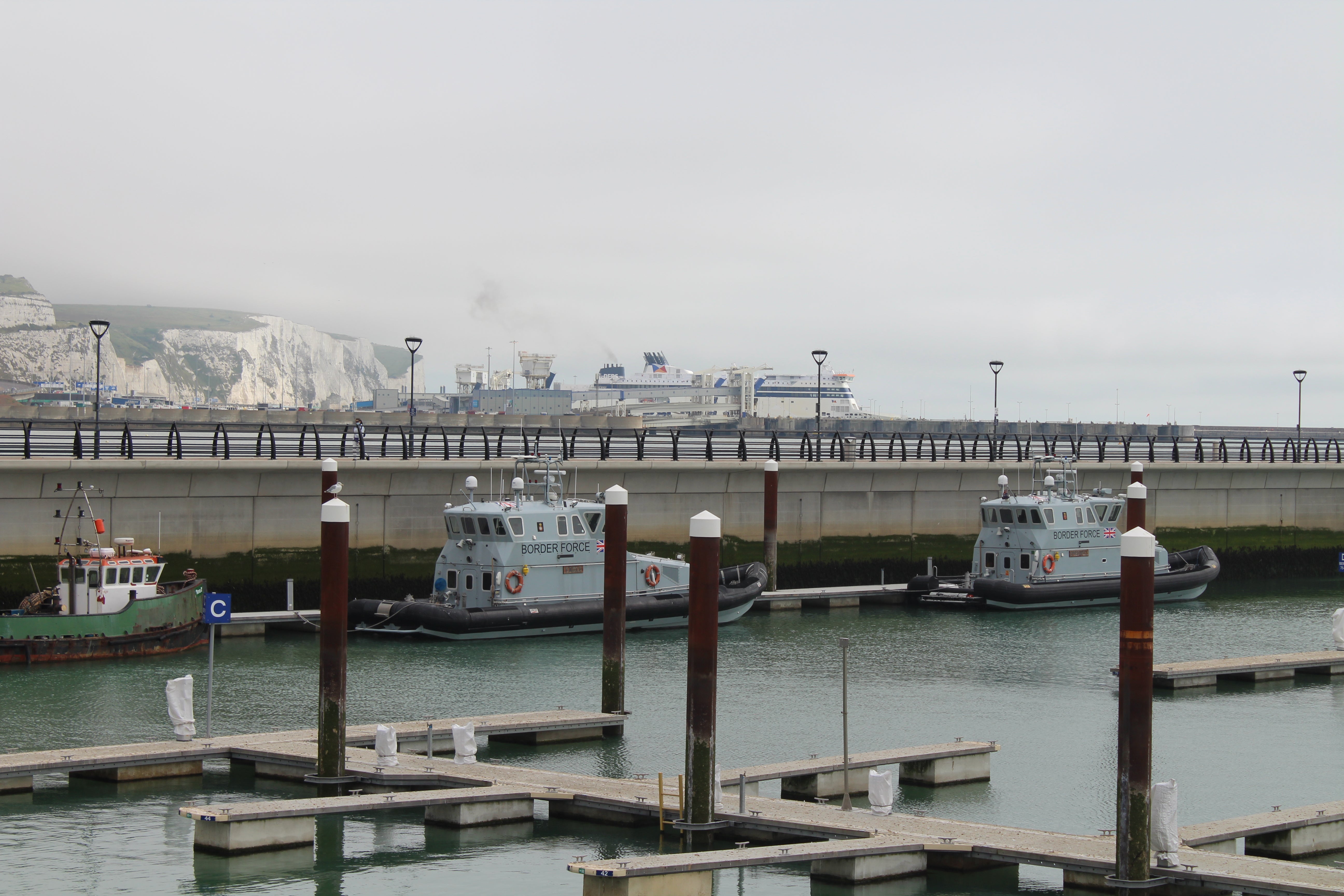
Caroline O’Connor, the CEO of Migrant Help, an organisation which was founded in Dover in the 1960s, also finds fault with the home secretary’s plans. “On the proposal to turn small boats back, I think it puts people in greater danger. And it doesn’t stop the people smugglers who are trying to bring people over,” she says.
Her charity, which now operates nationally, receives up to 2,000 calls each day from asylum seekers in the UK, who require support and advice concerning matters such as accommodation and racist abuse.
Referring to those who attempt the sometimes fatal journey across the Channel, Ms O’Connor says people should remember the reasons why they head to England. “If they didn’t feel in harm’s way, they wouldn’t try it.”
John, a former soldier who has lived in Dover his whole life, thinks migrants should stop in the first safe country they reach after fleeing their homes. He says this rules out many of those who come to Britain. However, he is in favour of the government adopting a less hands-off policy. “If we’re going to let them in anyway, why aren’t we just picking them up? Send a ferry over and make it safer.”
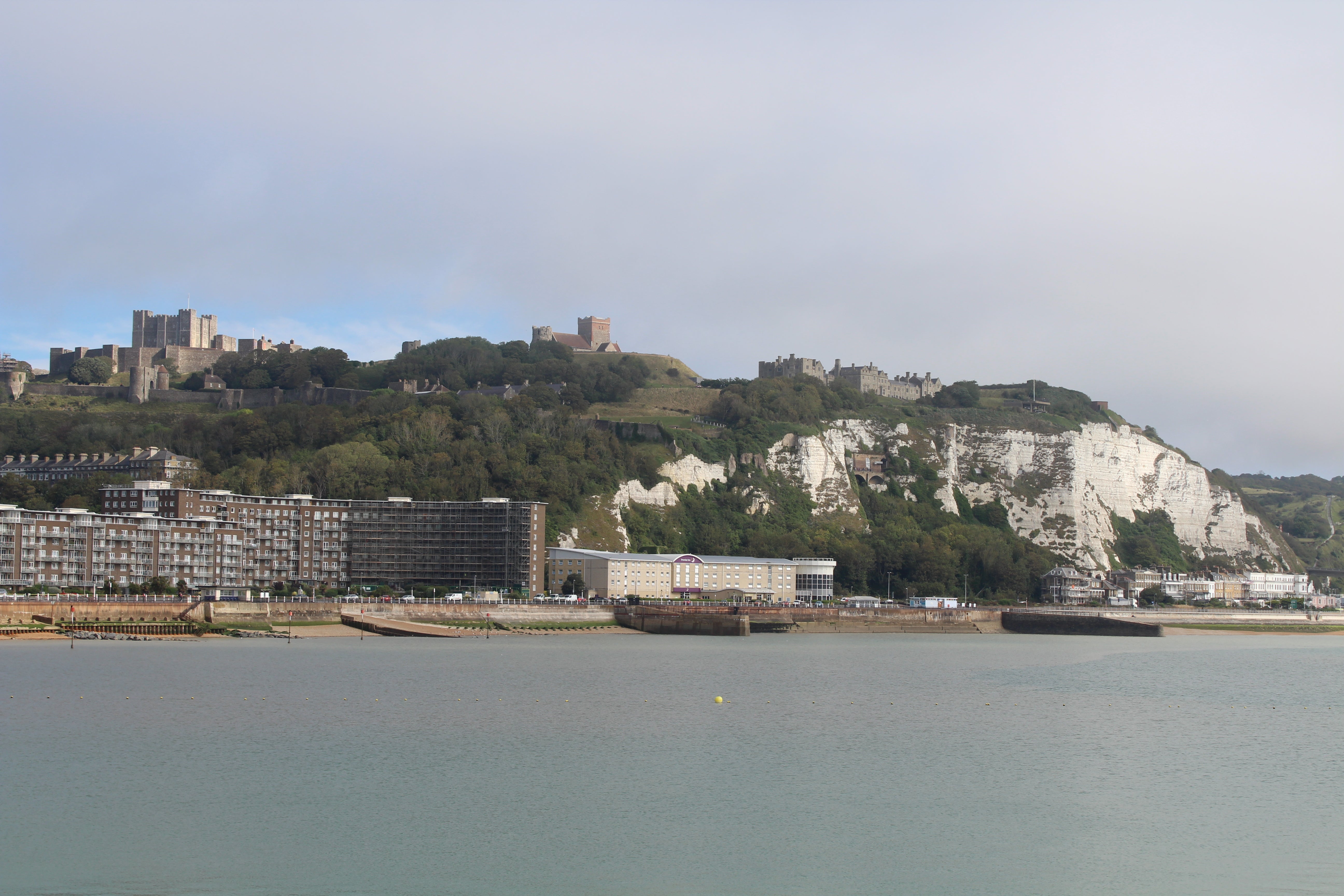
Not everyone I speak to backs such a move. One woman, who wished to remain anonymous, tells me on Dover promenade: “England can’t accommodate more people - it’s too densely populated.” But her view is countered later by a shop owner in Folkestone: “I think we should welcome anyone who needs a safe place. It’s just luck where we’re born. I don’t feel possessive of my land. I just feel lucky I was born here.”
Kent Refugee Action Network (KRAN) is of the same attitude. Set up 18 years ago, the Canterbury-based charity aims to ensure the integration of young unaccompanied migrants into the local community. They put on English lessons and offer mentoring programmes to help these individuals adjust to their new lives.
Explaining its popularity, Bridget Chapman, who works for KRAN in Folkestone, says: “They come because we offer something they think is useful: a chance to laugh, have someone smile at them and ask how they’re doing.
“We can’t replace their families, we know that. But we try to put in place the kind of support a family would have given those young people. And to try to make them successful at living independently.”
Abdul, Ali and Hazrat, who are all in their 20s, fled Afghanistan as children, reaching England between 2008 and 2015. They speak of KRAN in glowing terms, with Hazrat saying: “I wish there were more people like them.”
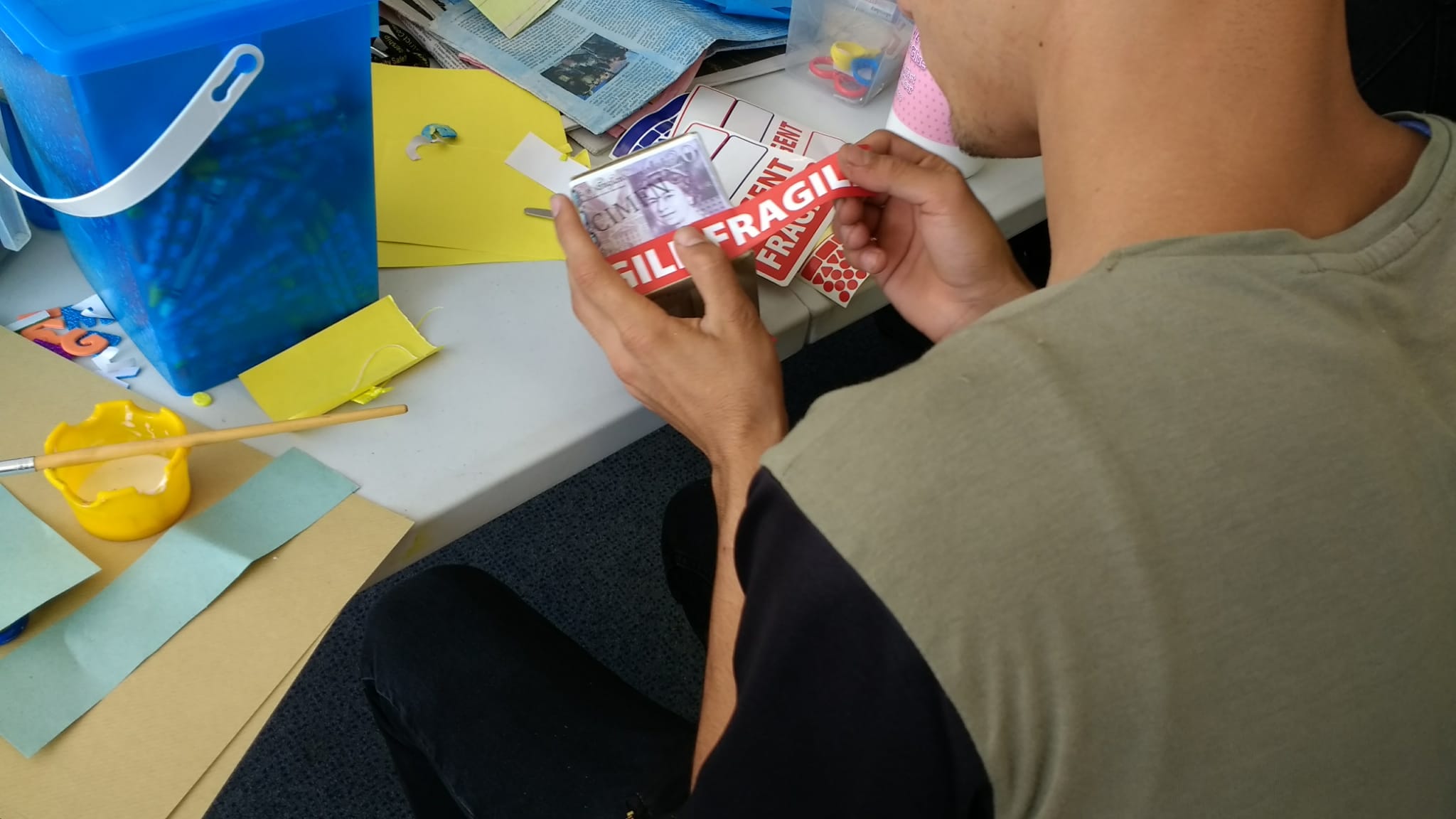
At different points in our conversation, the trio tell me how much the security of living in England means to them. “If you’re safe somewhere, that’s everything for you. If you don’t have money, it doesn’t matter. The thing that matters is that you’re safe,” says Ali.
They also reflect on the difficulties they faced acclimatising to life in Kent. For Abdul, it took three rejections in three years before he was finally granted asylum. Those years were stressful, he says. “When I lived with my foster carer, all my focus was on asylum. I’d go to college and come back, and couldn’t remember what I’d studied.”
Our chat moves on to the possibility of border forces “pushing back” dinghies filled with migrants. They believe the proposal is cruel. “We’re all got the same blood; just the skin colour is different. At the end of the day, we’re all human,” Hazrat notes.
The subject is personal for Ali, whose two brothers successfully made the journey across the Channel by boat recently. Abdul, Ali and Hazrat all got to the UK in the back of lorries, a route which was made more difficult after 2015, when security was strengthened at Calais and elsewhere.
As a result, the sea is now the route preferred by people smugglers. On a hill above the Port of Dover, hundreds of dinghies - recovered from the Kent coast by the Border Force - lie in a compound. This graveyard of boats attests to the precarious nature of the Channel crossing: paddles and ineffective-looking hand pumps can be seen in some of the small inflatable boats.
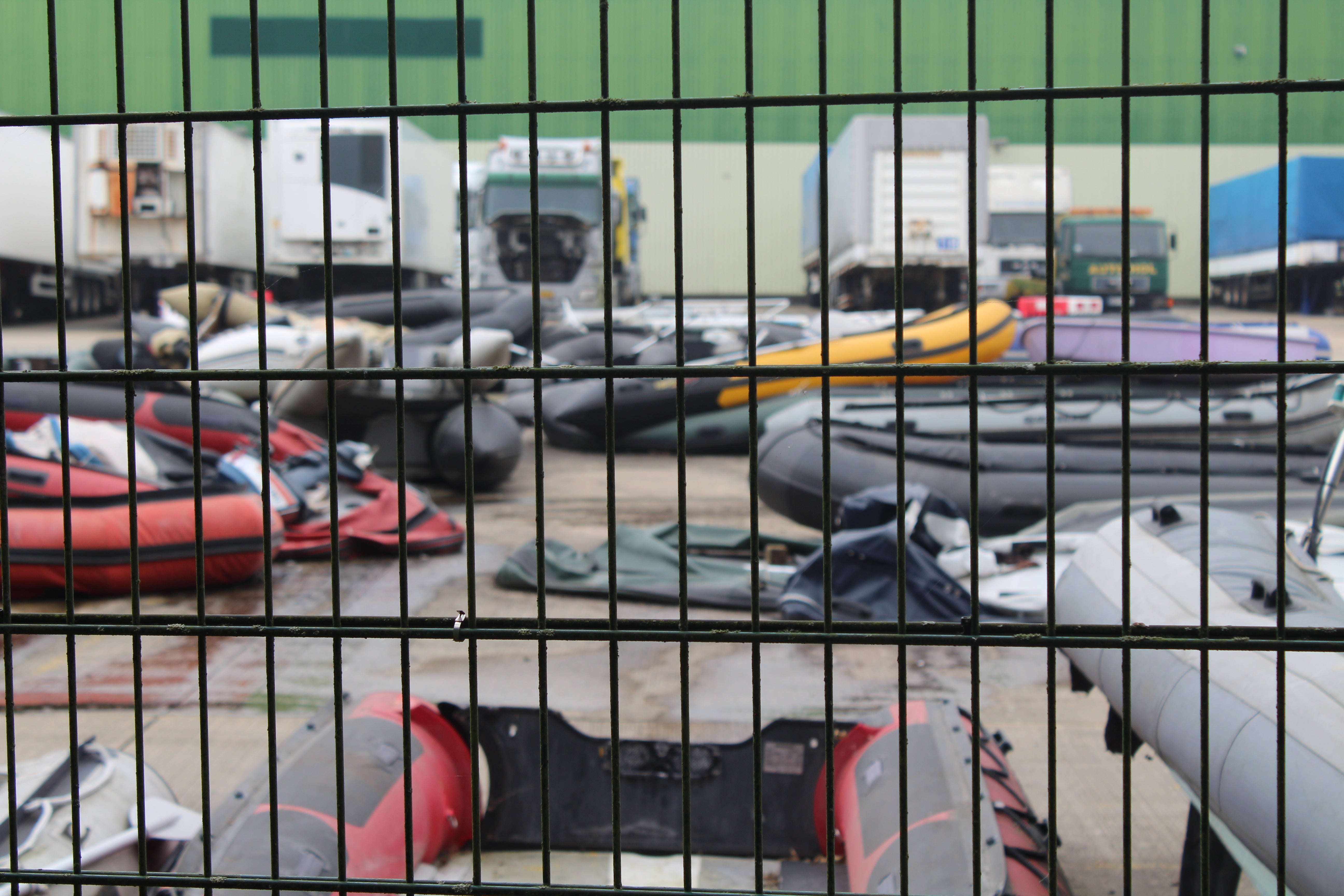
For Channel Rescue, the British government must help and not threaten those who risk their lives at sea. In a statement released earlier this week, it said: “The authorisation of pushbacks means the lives of thousands of innocent children, women and men have been put at greater risk.
“There is an urgent need for safe and legal routes for those wishing to claim asylum. The securitisation and militarisation of the border must end.”
The Home Office told The Independent it would continue to explore “safe and legal options” in an attempt to reduce the “unacceptable rise in dangerous and unnecessary small boat crossings”.
“Our primary focus is on preventing people from entering the Channel, tackling the criminal gangs responsible and protecting lives,” it said.
Ms O’Connor, of Migrant Help, hopes ministers will channel the sentiments shown by the British public in recent weeks to Afghan refugees. “It would be great if the government and its policies reflected the values that British people are demonstrating with their kindness, donations and offers of help.”






Join our commenting forum
Join thought-provoking conversations, follow other Independent readers and see their replies
0Comments